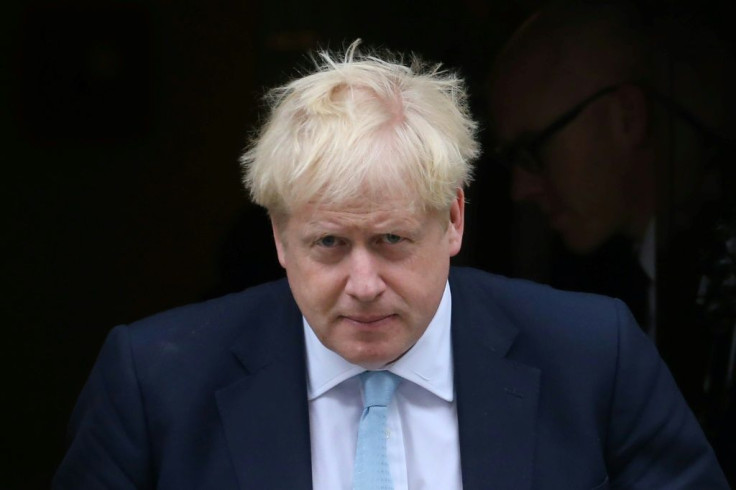Britain's Brexit Tangle Complicated By Belfast Impasse

British Prime Minister Boris Johnson's new plans to leave the European Union offer Northern Ireland's devolved government consent over new border arrangements with Ireland.
But his fresh Brexit blueprint has prompted an obvious question: how, when the power-sharing assembly in Belfast has been suspended since January 2017?
Johnson's plans, unveiled on Wednesday, propose keeping the British province of Northern Ireland in regulatory alignment with the European Union when Britain leaves.
At the same time, it would leave the customs union with the rest of the UK -- England, Scotland and Wales.
The unique arrangements are designed to keep the border between Northern Ireland and the Irish Republic free-flowing and uphold the terms of the 1998 Good Friday Agreement.
The landmark accord brought an end to 30 years of sectarian violence that left thousands dead and, crucially, created an invisible border between north and south.
Neither Dublin, Belfast or London wants a return to a hard border, which was a frequent target for deadly violence.
Johnson says preventing that and preserving the union between Northern Ireland and Britain, "must depend on the consent of those affected by it".
"We are proposing that the Northern Ireland Executive and Assembly should have the opportunity to endorse those arrangements before they enter into force," he said.
'Null and void'
The assembly at Stormont, which has devolved powers in areas from health and education to the environment and agriculture, has been suspended for nearly 1,000 days.
The two main parties -- the Democratic Unionist Party and Sinn Fein -- are constitutionally bound to share executive power.
But they fell out about a spending scandal for a renewable energy scheme.
Since then attempts to revive the government have consistently failed and there seems little prospect of a functioning body voicing consent anytime soon.
"The absence of an assembly means, obviously, that any veto power for the assembly is null and void until there is an assembly," Professor Duncan Morrow, a politics lecturer at Ulster University, told AFP.
A minority rule
Even if Johnson managed to get his new plan accepted, and a deal was brokered to rekindle Stormont, the issue of consent and endorsement of the border plan would also be muddied.
A "petition of concern" is a mechanism in the assembly, which allows the power of veto if a third of lawmakers object to any matter.
It was introduced as part of the Good Friday Agreement and was intended to ensure cross-community support for legislation.
But in the context of rubber-stamping a Brexit deal, which Johnson said would be required every four years, this gives a minority an outsized power.
It also creates a potential roadblock, in that a devolved assembly would effectively decide on a non-devolved matter -- foreign affairs -- with no input from Dublin or Brussels.
Irish foreign minister Simon Coveney on Wednesday said the EU and Ireland cannot accept a minority veto power designed for cases of "domestic decision-making in Northern Ireland".
"This is something that is very different," he added.
"It is an agreement between the UK as a whole and the EU as a whole, to try to deal with an international border question."
A stacked deal?
The DUP are in a minority as Johnson's only major backers in the province, and are currently in coalition with his ruling Conservative party in the UK parliament in London.
Johnson's proposal to offer power to the devolved government, where 27 DUP legislators would need only three allies to control Brexit arrangements, seems to weigh in their favour.
"The veto power is very carefully crafted to ensure that the DUP, or at least Unionism has total control," Morrow explained.
With that on the table, Brexit could become one more reason why the other parties to refuse to return to Stormont.
"It is absolutely impossible to see a circumstance in which the other parties would participate in their own destruction -- so there will be no assembly," Morrow added.
But under Johnson's plan "if consent is withheld, the arrangements will not enter into force or will lapse... and arrangements will default to existing rules."
For Morrow the design of Johnson's bid indicates that it is not a sincere offer, and could not be accepted without selling out every political party in the north apart from the DUP.
"That in some way is its cleverness: it forces the EU to reject, rather than the UK," he said.
© Copyright AFP 2024. All rights reserved.





















